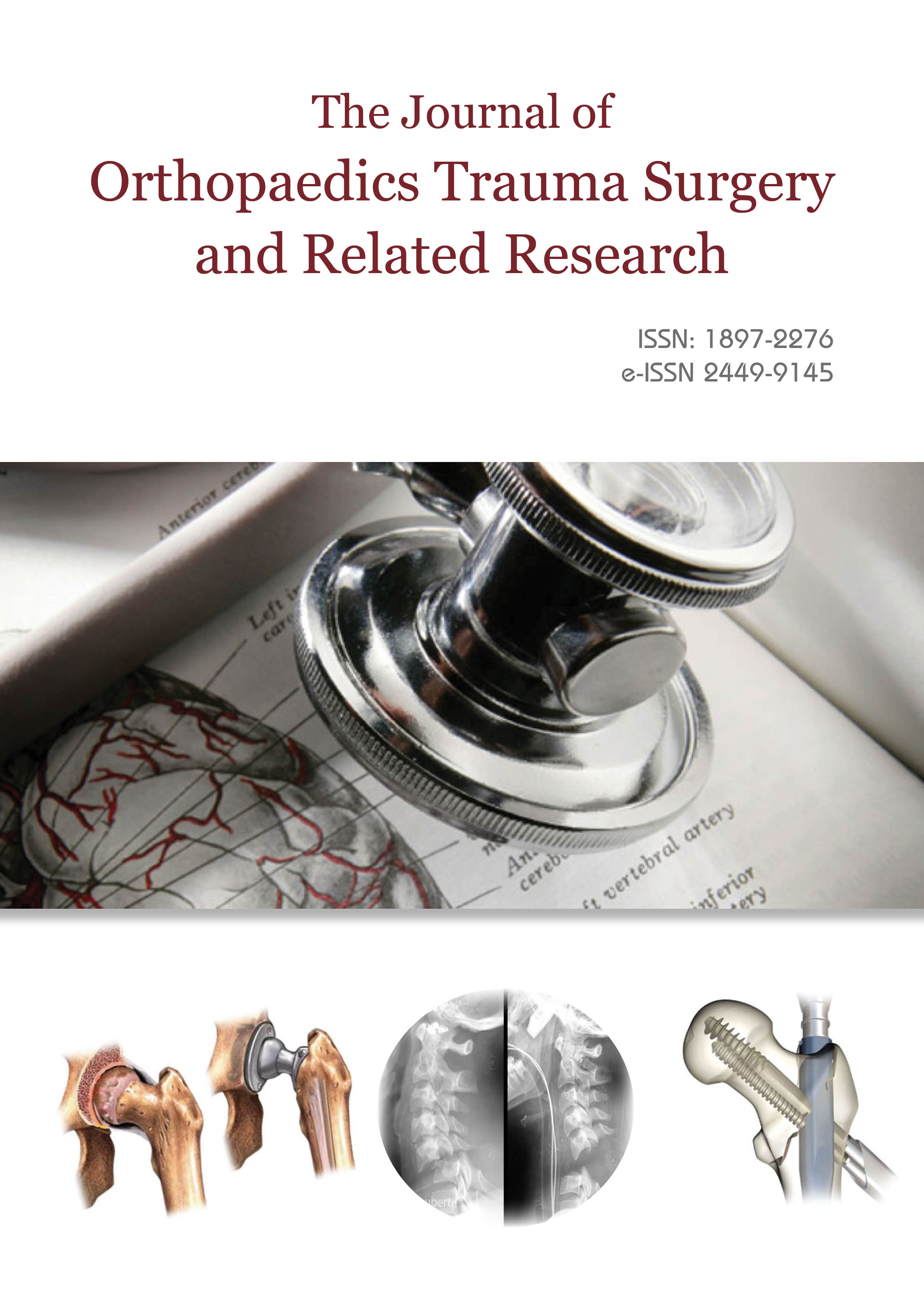Journal of Orthopaedics Trauma Surgery and Related Research

An Official Journal of Polish Society of Orthopaedics and Traumatology
ISSN:1897-2276
e-ISSN: 2449-9145

An Official Journal of Polish Society of Orthopaedics and Traumatology
ISSN:1897-2276
e-ISSN: 2449-9145
Introduction. Degenerative disease of the hip joint is one of the most frequent causes of pain complaints and limited mobility of the joint. The course of the disease intensifies with age, and its first symptoms may be observed in a significant portion of the population over 50. Description. The only effective alternative that improves the function of the hip joint is alloplasty. The aim of the study was to determine to what extent alloplasty of a degenerated hip joint enabled patients of productive age to continue their occupational career. An attempt was made to assess the factors that might play a role in resuming work by patients after hip joint surgery. Material and methods. A group of 121 persons of productive age was selected (women up to the age of 60, men - up to 65). After telephone communication, those occupationally active before the surgery were chosen. A survey was conducted among 34 patients. The questionnaire included the patient’s current employment status, position, health condition, determination of the Oxford Hip Score, physical demands at work and job satisfaction. Then the patients were divided into two groups (currently employed and unemployed) and the results were compared by means of relevant statistical analyses. Results. In the group of 121 patients after hip joint surgery, only 34 patients (28%) worked before the operation. Among them, 26 persons (76%) resumed work and 8 persons (24%) stopped working. The patients who returned to work after hip joint alloplasty displayed a better health condition (p<0.01) and had a higher Oxford 12 Hip Score than those who did not resume their work (p<0.01). A comparison of both groups did not reveal any effect produced on the occupational activity by such factors as age, sex, self-employment, physical demands at work or job satisfaction (p>0.05). Conclusions. Hip joint alloplasty in those patients of productive age who suffer from degenerative hip joint disease and who were professionally active before the surgery allows them to resume their occupational activity. A prognostic factor for their return to work after alloplasty is their health condition and the degree of their mobility impairment after the surgery, evaluated by means of the Oxford 12 Hip Score (p<0.01).
Select your language of interest to view the total content in your interested language
 Journal of Orthopaedics Trauma Surgery and Related Research a publication of Polish Society, is a peer-reviewed online journal with quaterly print on demand compilation of issues published.
Journal of Orthopaedics Trauma Surgery and Related Research a publication of Polish Society, is a peer-reviewed online journal with quaterly print on demand compilation of issues published.